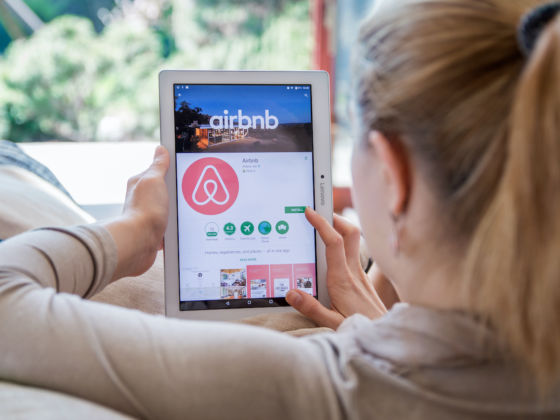THERE’S A PROBLEM WITH AIRBNB. Last December, Harvard researchers released a report that it was harder for members of the online housesharing community with “black-sounding names” to find a place to stay than it was for people with less “black-sounding names.” After the release of the report, many black travelers came forward with stories of discrimination and posted using the Twitter hashtag, #AirbnbWhileBlack. There has been at least one prominent case of an Airbnb host discriminating against a trans woman as well.

Airbnb Is Starting to Fight Discrimination. Here's Why It's Not All Good News.
Airbnb has an anti-discrimination policy, but many of their hosts aren’t subject to the Fair Housing Act, which makes it illegal for buildings like hotels and apartment complexes to discriminate against tenants. Since a lot of the hosts that rent on Airbnb live in smaller units and don’t use brokers, the FHA doesn’t apply to them. While discriminating hosts are breaking Airbnb policy (and if they are reported, will likely be removed), they may not be breaking the law, and Airbnb themselves can’t be held legally responsible for any laws their hosts break.
This is largely because of a gap in the law — the Fair Housing Act came into effect in 1968 when the sharing economy and the internet weren’t around, and the laws haven’t caught up to the new reality. There are some efforts to get the laws caught up, but the political will hasn’t really built to a tipping point yet.
Airbnb of course admits that this a major problem, and offers “unconscious bias” training for hosts that may be discriminating without being totally aware of it. And they have said they will release plans to fight bigotry on their platform in the next few days.
But they have a condition in their terms of service that makes it really hard for users who have been discriminated against to seek legal recourse: in order to use Airbnb, you have to waive your right to file a lawsuit against the company, or to participate in a class action lawsuit. And the court system is one of the better places for civil rights proponents to fight their fight.
None of which is to say that Airbnb doesn’t seem to be making a serious effort to end bigotry on their site. They ban hosts that are openly discriminatory, have released ads that express solidarity with the Pride movement, and have hired an ACLU lawyer to head up their efforts. But unless the company follows the same standards as other lodging options, like hotels and hostels, it’s going to be hard for anything real to change.
Via The New York Times and Mic